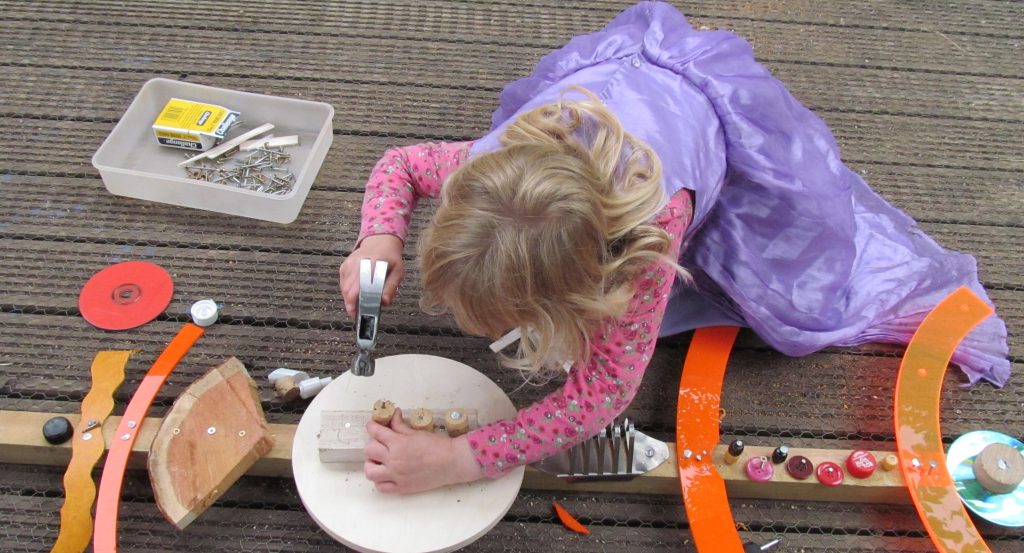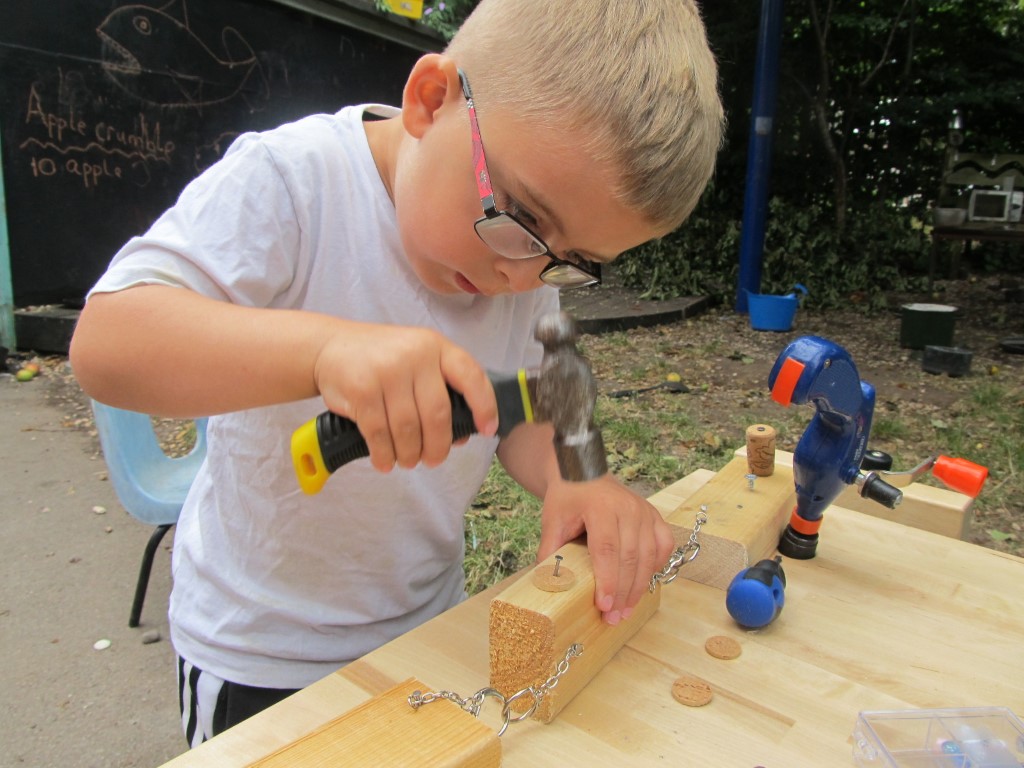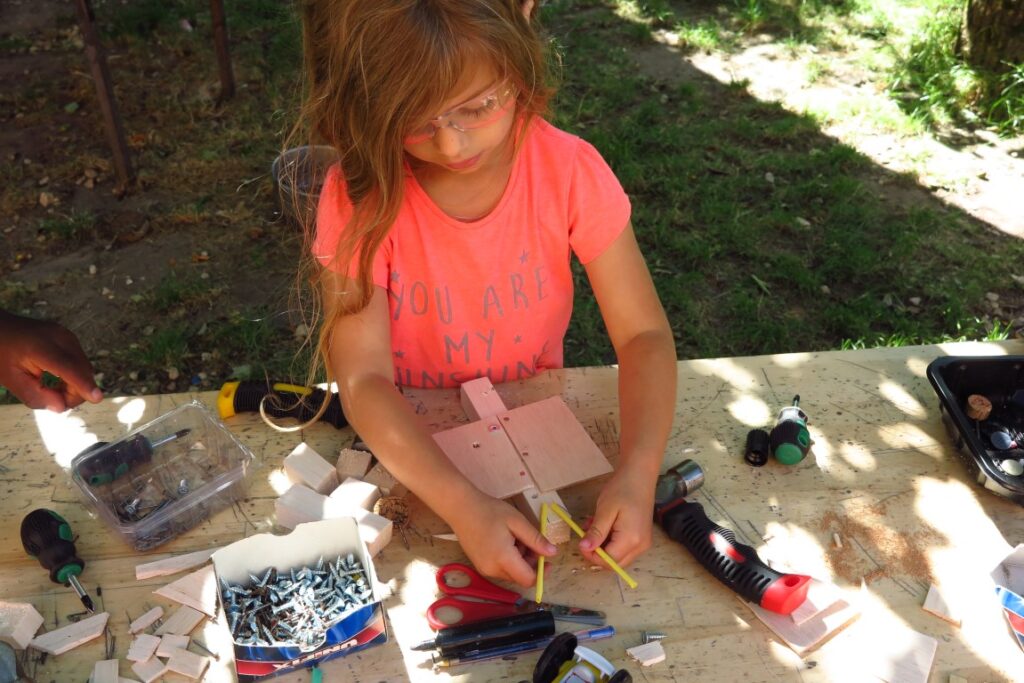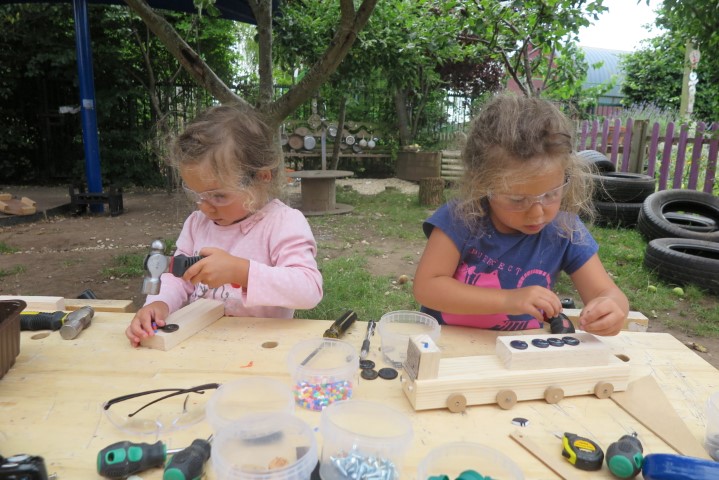Welcome to The Big Bang Project which is all about sharing the wonder of woodwork within Early childhood education.
There is something really special about woodwork’s ability to engage young children. It’s learning in the doing.
The smell and feel of wood, using real tools, using imagination to express ideas and solve problems, and using strength and coordination – all combine together to captivate young children’s interest. High levels of engagement and enjoyment are commonplace. It provides a truly unique experience.
The experiential nature of woodwork involves the ‘whole’ child, it’s the hands, body and mind working together. It helps develop core dispositions to learning and promotes well-being, as children gain self-confidence, increasing autonomy and a growing sense of agency – that ‘can-do’ spirit that develops as they put their ideas into action.
Emphasis is placed on creative woodwork where children have the freedom to make their own choices and decisions. Woodwork tends to present many problems and challenges, but when children are following their own ideas, making what they want to make, then we find they have intrinsic motivation to persevere and find solutions. In this way, creative and critical thinking skills are absolutely central, both in terms of self- expression and with solving problems.
Seeing children so absorbed in their work and deeply engrossed in the flow of creativity is the real magic of woodwork. It encourages an experimental mind-set and we see children ‘become’ innovators, designers, engineers and architects at the workbench.
Woodwork can be central to curriculum as it really can embrace all areas of learning. It incorporates mathematical and scientific thinking, it supports a understanding of the world and basic technology, and there a wide range physical development as well as the rich personal development. Woodwork is a truly cross-curricular activity, and the knowledge and skills gained can resonate throughout life.
Woodwork is incredibly popular with children as they take delight in what the tools enable their hands to do. It’s natural to feel a little apprehensive of young children using real tools, but it’s actually surprisingly safe and low risk. With careful introduction on how to use tools and with basic health and safety measures put in place, children will in no time, be working confidently, as they tinker and make wonderful creations.
At the workbench children develop learning at their own pace and once they have mastered basic skills, they start to explore possibilities and express their imagination. In this way it encompasses a way of working that develops over time as children express their ideas with increasing fluency and complexity. Woodwork provides rich, multi-layered experience with many opportunities to build on previous learning.
Children today arguably have a disconnect with real life experiences through the increasing use of digital technology, and the need for concrete first-hand learning experiences to connect on a deeper level has never been greater.
Currently we are seeing a surge of interest in woodwork provision in early childhood education right around the world, with a renewed interest in hands-on making, perhaps in response to the overly commercialised world of mass production. Through woodwork children learn a more sustainable practice, experiencing what it means to make and repair, and how to repurpose recycled materials.
Currently many children never get to experience tools in their entire education, which is clearly failing children, it is now more important than ever that we provide a solid foundation within early childhood.
As children make with wood they will be learning skills that can empower them to shape their world.
It would be wonderful for all children to have the opportunity to work with real tools and experience the wonder of woodwork.




